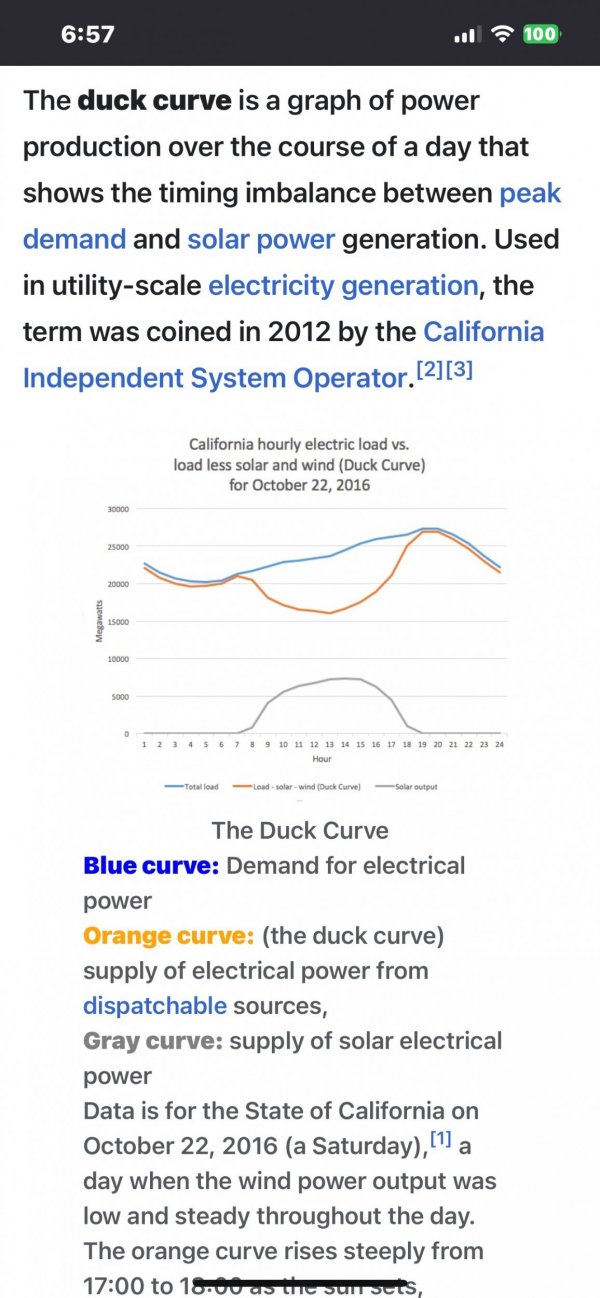Look at the graphs I posted and do a calculation on how much land mass would be required to power this country with wind and solar. Even a basic calculation of the total area. Then start looking for where that 12 mph constant wind and/or cold cloudless sky are. Now look at where the people live and calculate the expansion of grid and resources need to move the power from here to there. Don't forget to calculate the impact on agricultural land your turning into energy production. And don't forget to include the impact of Eminent Domain as the government forces people off their land and out of jobs. How are you going to deal with them. Its a very complex issue.
FWIW, WA state utilities years ago said they have all the rooftop solar they can use. They have cut the payback to reflect every new install is a 0 gain for the utility. Its wasted power. It only works in the day when its not really needed. Its not there in the morning or night when people get off work, go home and turn on there electrical toys or charge their cars. Rooftop solar is over.
FWIW, WA state utilities years ago said they have all the rooftop solar they can use. They have cut the payback to reflect every new install is a 0 gain for the utility. Its wasted power. It only works in the day when its not really needed. Its not there in the morning or night when people get off work, go home and turn on there electrical toys or charge their cars. Rooftop solar is over.


